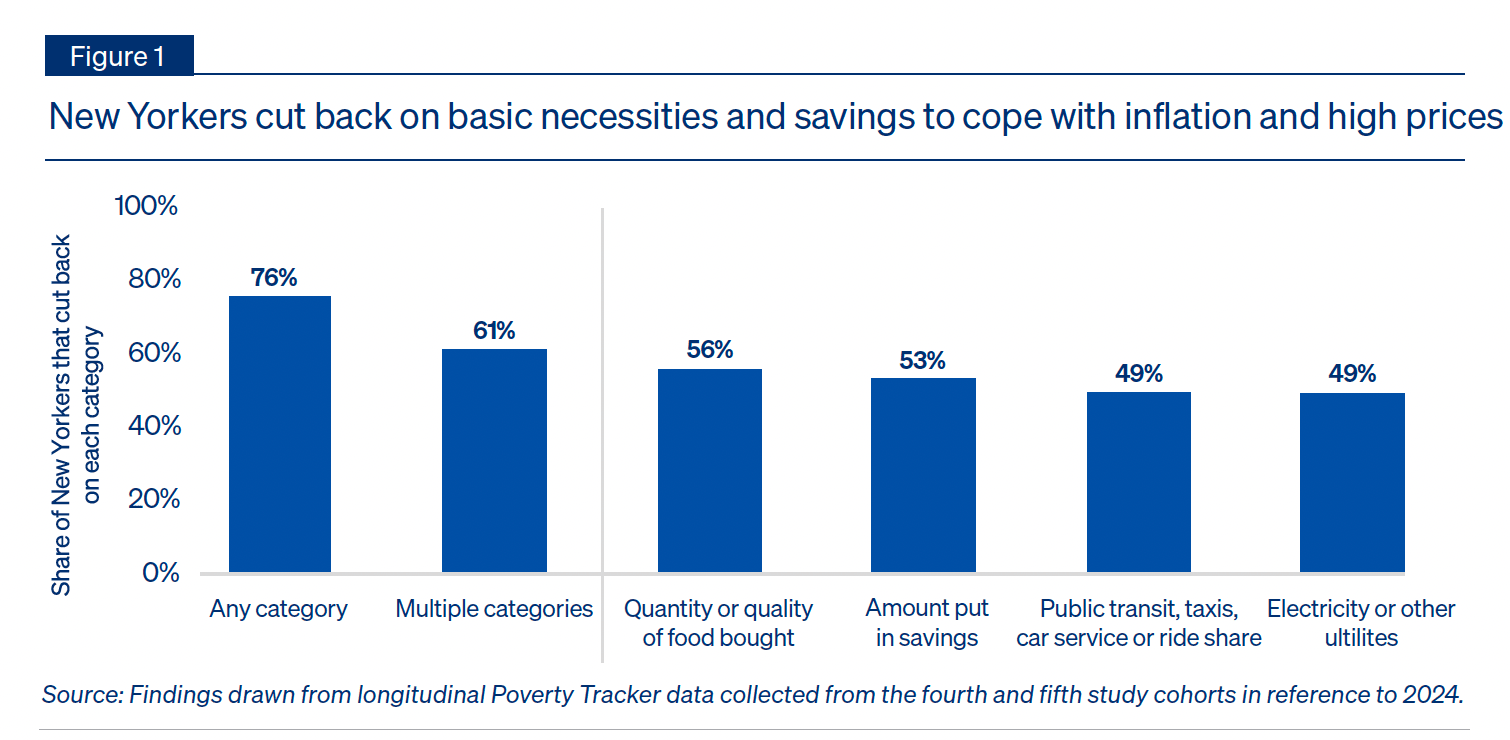September 2025
Data Snapshot: How is the rising cost of living impacting New Yorkers?
This data snapshot tracks how rising costs of living have created an affordability crisis for New Yorkers across income distributions, leading to cuts in spending for basic necessities and curtailment of savings.
Contributors: Christopher Yera, Ryan Vinh, Yajun Jia, and Schuyler Ross
Issues Areas: Financial Security
Our most recent Poverty Tracker annual report revealed that poverty in New York City has been rising amidst sharp increases in living costs both nationally and in the city. The rising cost of living in New York City, however, has also created an affordability crisis that extends well above the poverty line.
This Poverty Tracker data snapshot explores how the affordability crisis has led New Yorkers across the income distribution to cut back on their basic necessities — including food, transportation, and utilities — and curtail their savings.
In 2024, more than 3 in 4 (76%) New Yorkers cut back on basic necessities and savings as a result of the rising prices of goods and services, and more than 3 in 5 (61%) made multiple adjustments. Approximately half of New Yorkers reported cutting back on food purchases (56%), money put in savings (53%), use of transportation (49%), and electricity or utility usage (49%).

This data snapshot makes clear that rising costs of living affect New Yorkers across all walks of life. The rising costs of goods and services forced the vast majority of New Yorkers to cut back on basic necessities, including food, utilities, and transportation, and to direct less of their income toward savings. New York’s affordability crisis extends well above the poverty line, with 70% of those living above twice the poverty line cutting back on basic necessities and savings. While these experiences are widespread, disparities also emerge along a wide range of demographic factors, with communities of color, female New Yorkers, families with children, and the foreign-born population all reporting cutting back on basic necessities and spending to an even greater degree than their counterparts.